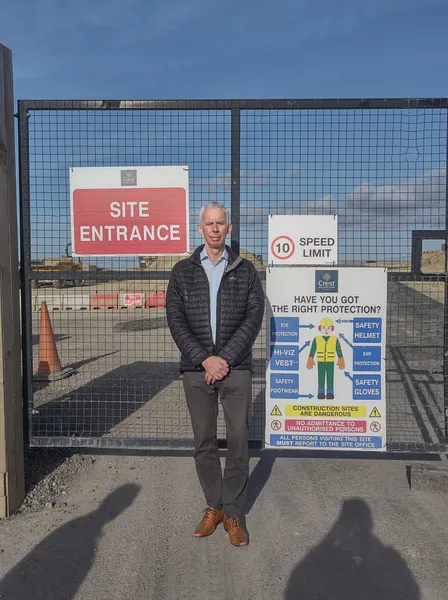Planning ministers have come and gone without achieving much. Can the new Labour government do any better? Parliament is currently debating a new Planning & Infrastructure Bill which aims to streamline the planning process and enable new national infrastructure, to meet an ambitious target of 1.5 million new homes over 5 years.
Unfortunately, Labour’s diagnosis of the problem is the same as it was under the Conservatives. They continue to believe that houses aren’t getting built because of a sclerotic planning system, obstructive councillors and Nimbyist residents. And because they diagnose the same problem, they come up with more of the same solutions. That means higher targets and even less local control over planning decisions.
But what if they’re wrong? Just as the Conservatives before them, Labour is making the mistake of believing that permissions are the same thing as actual houses. In reality, the great majority of planning applications do eventually win approval. The real problem is that they’re not getting constructed. The national total of unbuilt permissions now stands at over 1.4 million, while in Horsham District, there are 13.5k, including those in the new Local Plan. Adding thousands more to that list through higher targets isn’t going to help anyone.
If it’s true we haven’t got enough houses, why aren’t those permissions getting built? Usually, it’s not because of land banking but because the new builds are out of reach for most buyers. If developers could build cheaper homes, they’d sell like hotcakes.
The average price of a new house in Horsham is higher than the homes we already have. So, the more we build, the worse our affordability ratio gets, and the more we’ll be asked to build. The very strategy that’s supposed to bring average prices down, under both the Conservatives and Labour, is instead driving them up.
For this reason, the government’s solution of reducing local control will not improve affordability further. Horsham District Council (HDC) has already substantially lost control of planning because the Horsham Local Plan, which should have been renewed under the last Conservative administration but was pulled repeatedly, is severely out of date. We are far, far behind on our annual housing target. Government Planning Inspectors are, therefore, likely to rule in favour of any speculative development, whatever local councillors and residents may say.
As a previous Cabinet Member on HDC until my election as MP, I helped steer a new Local Plan through the Council, which would have restored our land supply and prevented speculative development. Unfortunately, this has been heavily delayed because the Planning Inspector is not willing to accept the water neutrality solution, although all statutory bodies and two neighbouring councils have already agreed to it. If the plan doesn’t pass, HDC will be forced to start again under Labour’s new rules. This will lead to our 5 year housing target being at least tripled.
Many MPs and councillors do not understand that local housing numbers are decided not by the national target, which gets all the headlines, but by an arbitrary mathematical formula known as the Standard Method. This was announced under the Conservatives back in 2017. It leads to ridiculous targets and actively guarantees maximum development on greenfield sites, at the very same time as Ministers claim they are favouring brownfield. It is extraordinary to hear so many MPs and councillors protesting against the effects of the system they voted for in successive elections.
Developers are commercial businesses, not social enterprises. They know perfectly well that HDC will have to approve a high number of applications in order to hit their compulsory target. Any developer in possession of a qualifying site close to an existing settlement can resist demands for a better deal because they know that, in the end, HDC will have to cave in.
Labour’s new legislation will turbo-charge the same flawed system that has already done so much damage. Rather than improving affordability, high prices will be locked into the system for decades to come because these sites are incredibly wasteful in land usage. Instead, I believe that any reform should include three vital changes:
Firstly, we need immediate provision of genuinely affordable homes, alongside the restoration of supply in homes for social rent (what used to be called council houses). This will require significant state intervention, it’s not going to happen all by itself.
Secondly, to pay for this, the state needs to capture a much larger share of the tremendous uplift in value that comes when agricultural land gets planning permission. This should not be done by compulsory purchase, but by giving local authorities stronger control over the Section 106 process by which social amenities are negotiated.
Thirdly, services and infrastructure provision needs to be legally tied to the original planning permission, such that government agencies cannot simply change their minds a few years later.
I’ve not even had time to mention the significant reductions in environmental protection which are also part of this Bill. But my key point is this: simply taking away what remains of local control over planning, as Labour is intending to do, is an incredibly inefficient, slow and destructive way to improve affordability. It will create massive public opposition, mostly in the countryside, but that protest will have nowhere to express itself because the Bill will take away all legal avenues.
This housing crisis must be solved because it’s holding back a generation. But if we really want to improve affordability, this is not the way to do it.


